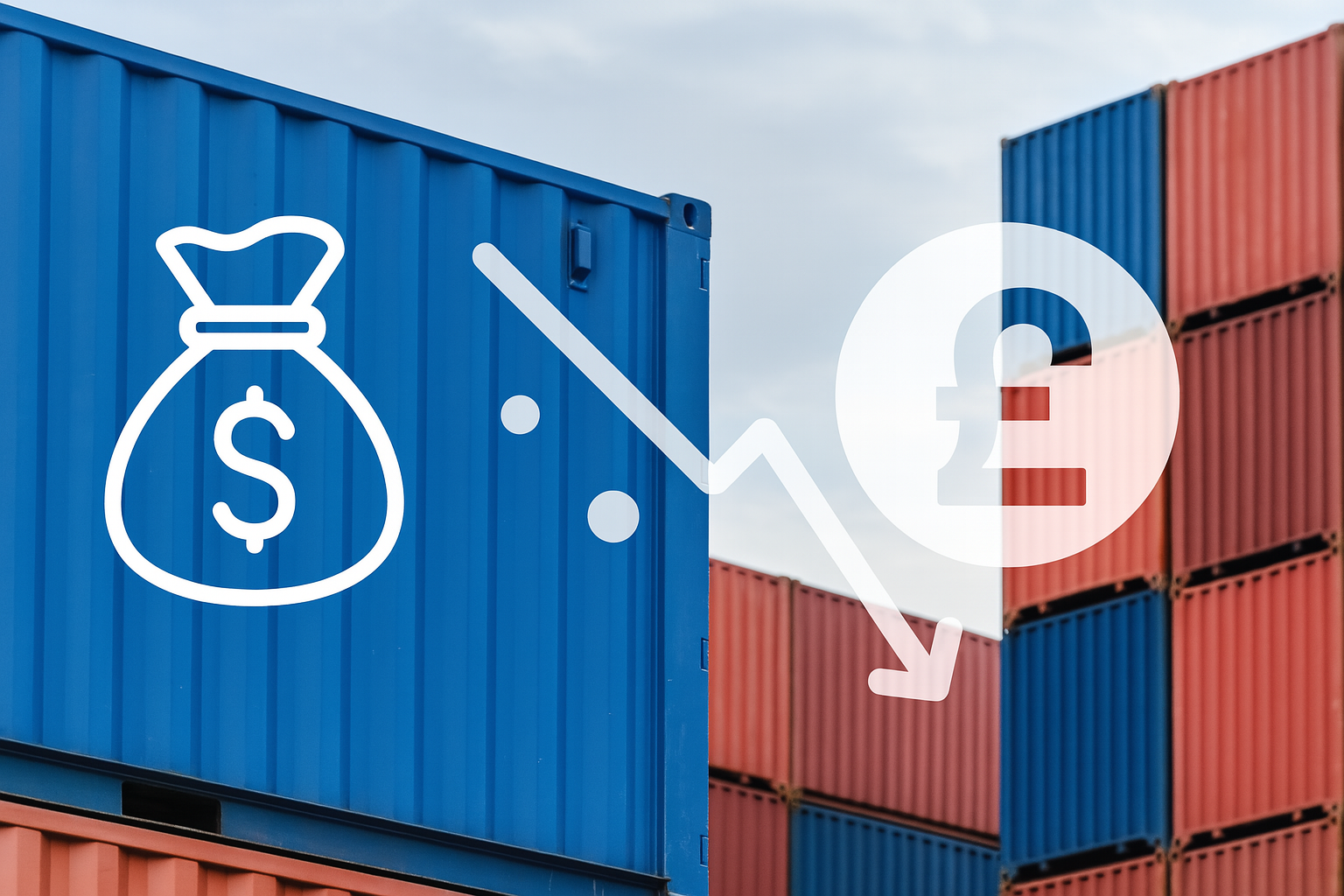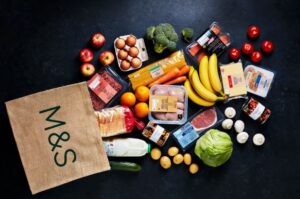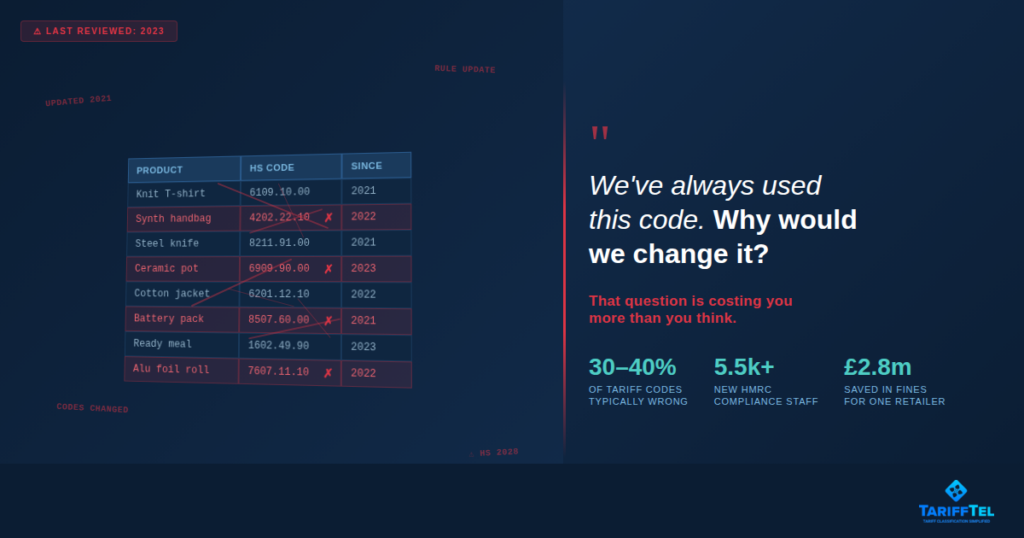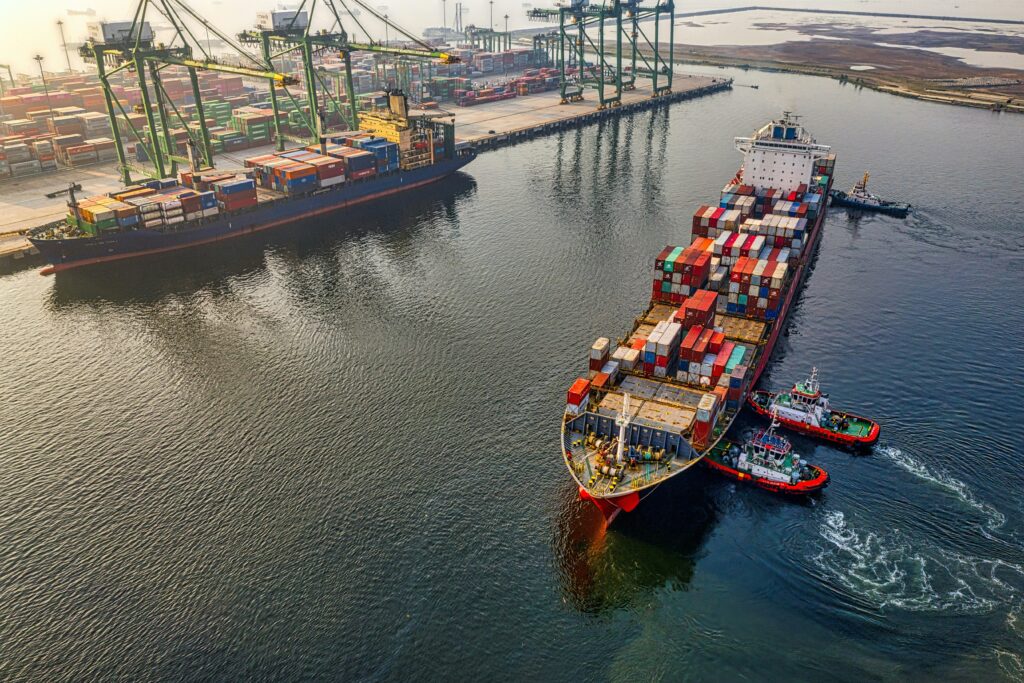Incorrect tariff codes are draining your bottom line
Topics

Getting tariff codes right is the fastest way to boost margins
Every year, businesses quietly haemorrhage profit due to one hidden culprit: tariff code misclassification. It’s silent, systemic and entirely avoidable.
Whether you’re overpaying duties due to an overly conservative code, or facing audit penalties for misclassification, the result is the same: eroded margins and escalating risk.
The misclassification spiral: How it happens
Many importers operate on outdated assumptions or legacy and manual systems managing tariff classifications in spreadsheets or siloed platforms.
The result?
-Over or under payment of duty
-Claiming preference incorrectly, or missing out on preference
-Non-compliance penalties, such as loss of CFSP or AEO
-Audits triggered without warning
HMRC has increased their focus on audits in the past 18 months. Misclassification is a top trigger.
Even mid-sized importers are feeling the pain. This is what we’re seeing in the market today:
-£100,000+ in overpaid duties annually is typical
-60%+ of businesses lack automation in classification
-Manual errors often go unnoticed for years, until a regulator comes calling
Real-world example: £1M overpaid in retail
A leading UK retailer uncovered over £1 million in overpaid duties over three years. An audit showed 336 misclassified SKUs across 58,000 customs declarations, impacting 31 products. With help from Barbourne Brook, they recovered the lost value. But only after years of leakage. They now prioritise classification to make sure the same mistake doesn’t happen again.
How tariff codes drive cost – And how FTAs complicate it
What makes this even trickier? Duty rates differ wildly across trade agreements.
 For example, a ladies, knitted, cropped t-shirt (6114) can have different duty rates across three countries of origin (provided you meet your rules of origin):
For example, a ladies, knitted, cropped t-shirt (6114) can have different duty rates across three countries of origin (provided you meet your rules of origin):
-Vietnam – 0% under UK–Vietnam FTA or 4.8% under CPTPP
-China – 12% under standard WTO terms
-Bangladesh – 0% under UK-Bangladesh DCTS (Developing Countries Trading Scheme)
A wrong code doesn’t just mean a wrong rate; it could disqualify your shipment from preferential treatment altogether. That’s lost margin every single time.
“Misclassification doesn’t just cost money; it can cost competitive advantage.” Says Elizabeth Davies, Customs System Manager at TariffTel.
Reclaim what you’ve lost up to 3 years back
There’s good news: you can reclaim up to three years of overpaid duty. But only if you know where the errors are.
What’s better is having accurate tariff codes in the first place. This is where our TariffTel platform comes in offering precision classification at scale. TariffTel is reshaping classification with a dual approach: Automation and human insight where it matters.
-An automated system handles the bulk classification of a wide range of products.
-Tariff code changes and regulatory updates affecting codes are recognised and updated in real time.
-Full reporting and audit trail functionality makes compliance simple.
-Human experts focus on complex, ambiguous, or innovative products. Especially useful for the food and drink sector where products can be notoriously hard to classify.
-Experts review and validate automated classifications, especially those with high-risk or high-value implications.
Result: 99.9% accuracy. No assumptions. No blind spots.
It’s why classification teams at M&S Food and boohoo trust TariffTel.
What you get:
-Accurate duty rates
-Fully auditable classification history
-Detailed product information, images and documentation in one central place
-A classification infrastructure that scales as your business grows
Unsure where you stand?
 Want to know how compliant your business really is? Take our free Compliance Quiz to test your readiness for customs audits and uncover vulnerabilities that lead to additional costs.
Want to know how compliant your business really is? Take our free Compliance Quiz to test your readiness for customs audits and uncover vulnerabilities that lead to additional costs.
Prepare now. Get in touch to find out more about how TariffTel ensures your customs classification is fully compliant.
Other Useful Resources
“We’ve always used this code. Why would we change it?”
That question is costing you more than you think. It sounds reasonable. The code worked last time. Your broke...
Why 2 out of every 5 tariff codes are typically wrong
And what it’s costing you... Tariff codes might look like a routine administrative step when you’re preparing goo...
Tariff Book updates for 2026
As we head into 2026, another round of tariff book changes have come into force. Many relate to electricals and chemical...



